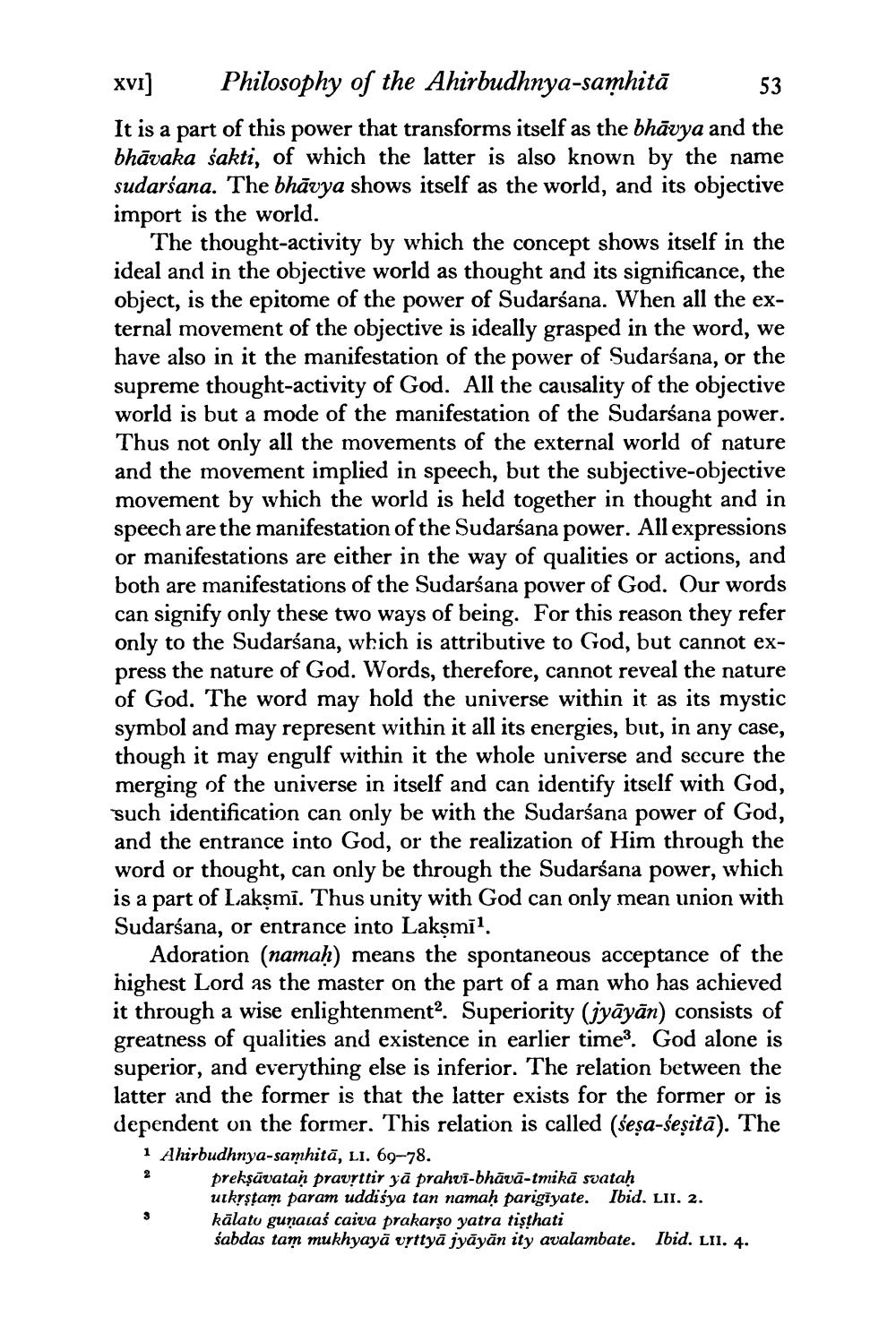________________
XVI]
Philosophy of the Ahirbudhnya-samhitā
53
It is a part of this power that transforms itself as the bhāvya and the bhāvaka sakti, of which the latter is also known by the name sudarsana. The bhavya shows itself as the world, and its objective import is the world.
The thought-activity by which the concept shows itself in the ideal and in the objective world as thought and its significance, the object, is the epitome of the power of Sudarsana. When all the external movement of the objective is ideally grasped in the word, we have also in it the manifestation of the power of Sudarsana, or the supreme thought-activity of God. All the causality of the objective world is but a mode of the manifestation of the Sudarsana power. Thus not only all the movements of the external world of nature and the movement implied in speech, but the subjective-objective movement by which the world is held together in thought and in speech are the manifestation of the Sudarsana power. All expressions or manifestations are either in the way of qualities or actions, and both are manifestations of the Sudarśana power of God. Our words can signify only these two ways of being. For this reason they refer only to the Sudarśana, which is attributive to God, but cannot express the nature of God. Words, therefore, cannot reveal the nature of God. The word may hold the universe within it as its mystic symbol and may represent within it all its energies, but, in any case, though it may engulf within it the whole universe and secure the merging of the universe in itself and can identify itself with God, such identification can only be with the Sudarśana power of God, and the entrance into God, or the realization of Him through the word or thought, can only be through the Sudarsana power, which is a part of Laksmi. Thus unity with God can only mean union with Sudarśana, or entrance into Lakṣmi1.
Adoration (namah) means the spontaneous acceptance of the highest Lord as the master on the part of a man who has achieved it through a wise enlightenment2. Superiority (jyāyān) consists of greatness of qualities and existence in earlier time3. God alone is superior, and everything else is inferior. The relation between the latter and the former is that the latter exists for the former or is dependent on the former. This relation is called (seṣa-seṣitā). The
1 Ahirbudhnya-samhita, LI. 69-78.
2
3
prekṣāvataḥ pravṛttir ya prahvi-bhāvā-tmikā svataḥ
utkṛṣṭam param uddiśya tan namaḥ parigiyate. Ibid. LII. 2.
kālato gunatas caiva prakarṣo yatra tişthati
sabdas tam mukhyayā vṛttyā jyāyān ity avalambate. Ibid. LII. 4.




